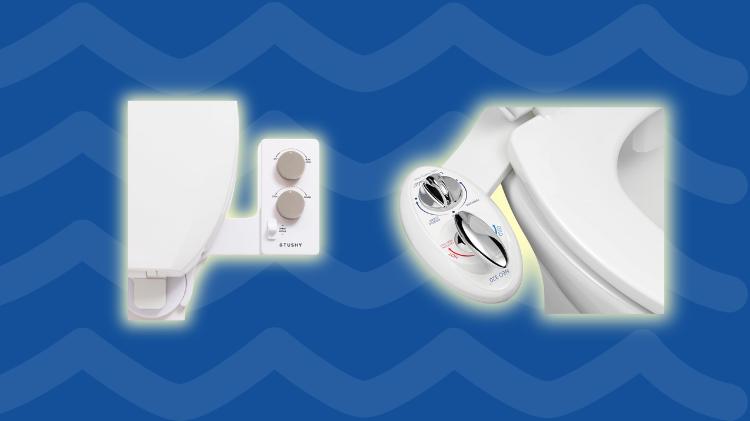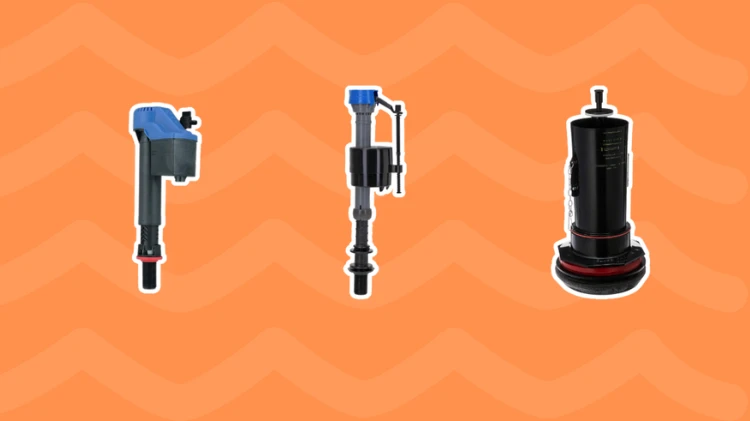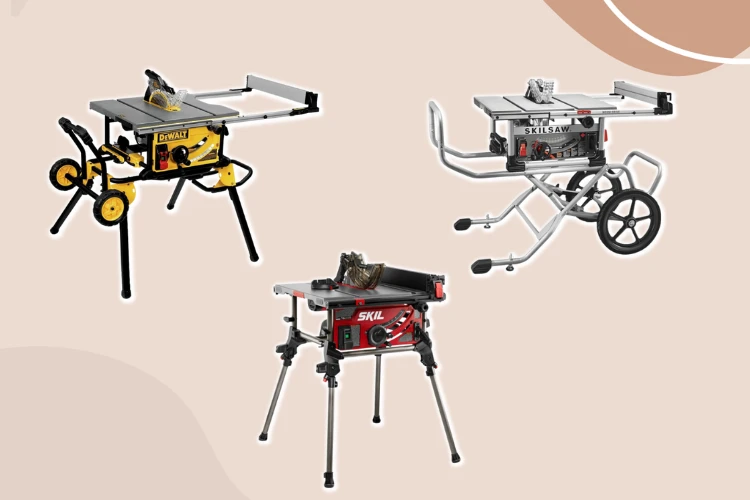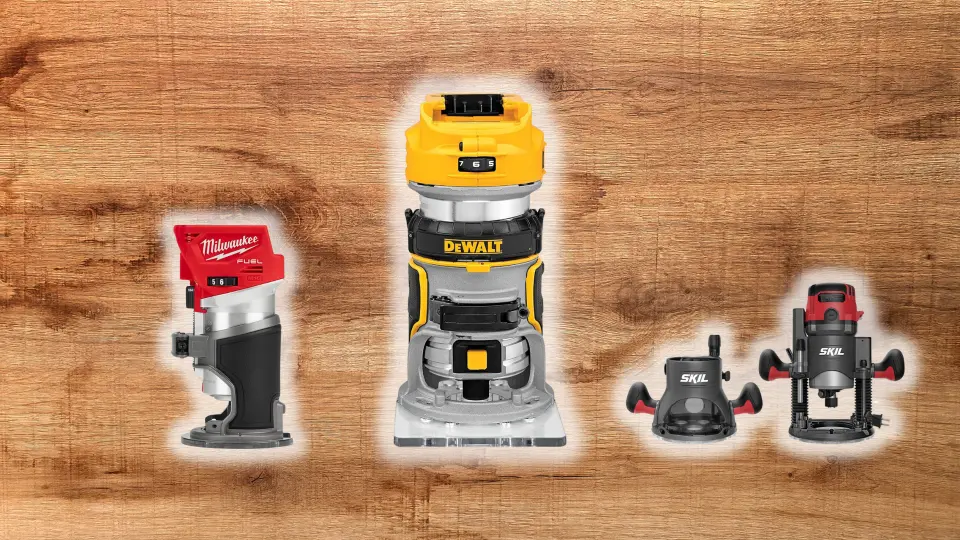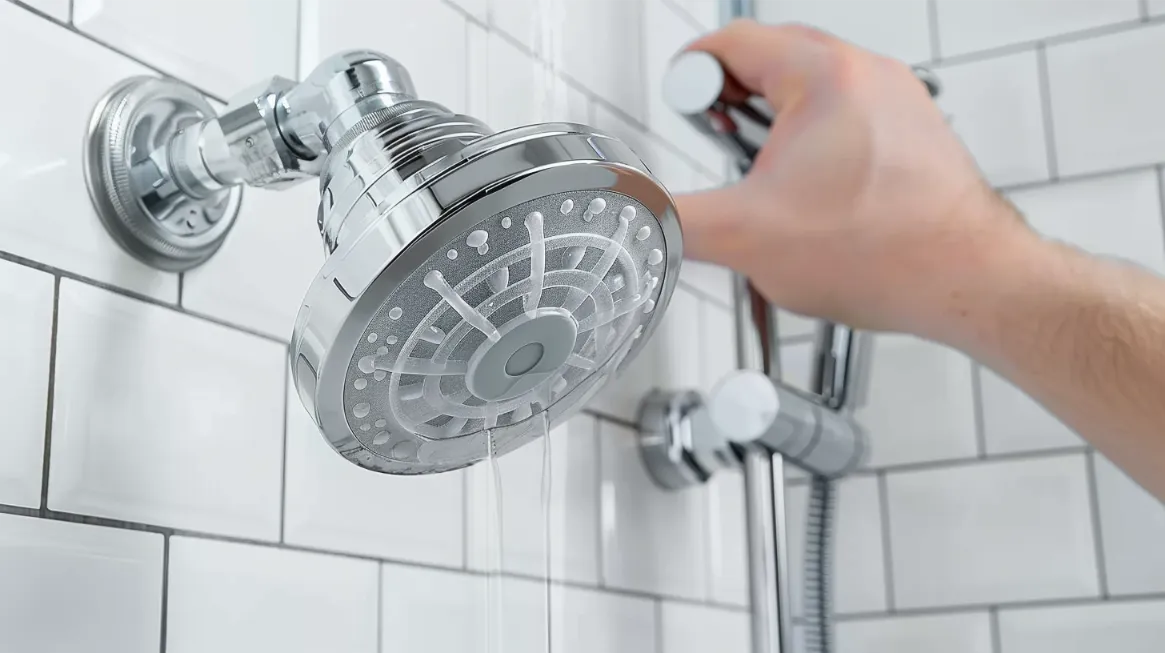Searching for the best multimeter is like navigating a labyrinth of features, accuracy, and reliability.
Whether you’re a seasoned electrician or a DIY enthusiast, finding the right tool is crucial for your projects.
We’ve scoured the market, comparing the top models on precision, durability, and ease of use to bring you the definitive list of the best multimeters.
From pocket-sized companions to professional-grade workhorses, our roundup promises a match for every need and budget.
Ready to dive into the specifics and find your perfect electrical companion?
Let’s get started.
Our Top Picks:
- Best Overall: Fluke 117 Digital Multimeter
- Runner-Up: AstroAI Digital Multimeter
- Budget Pick: AstroAI Digital Clamp Meter Multimeter
- Also Great: KAIWEETS HT118A Digital Multimeter
- Also Great: Klein Tools MM400 Multimeter
#1 Fluke 117 Digital Multimeter
The Fluke 117 Digital Multimeter is an indispensable electrician tool, offering unmatched reliability, accuracy, and safety features.
Why It’s Worth Your Attention: The Fluke 117’s combination of durability, precision, and safety-oriented features makes it ideal for demanding electrical tasks.
Things to Consider: While perfect for electrical applications, the absence of micro-amp measurements may limit its use in electronics troubleshooting.
The Fluke 117 Digital Multimeter stands out in the crowded market of digital multimeters as the go-to tool for professional electricians and DIY enthusiasts alike. This compact, feature-rich device embodies the reliability and precision Fluke is known for, making it an invaluable instrument for a wide range of electrical measurements.
At first glance, the Fluke 117 impresses with its ergonomic design and rugged construction, promising durability and ease of use even in the toughest environments. Fluke has optimized this meter for easy handling and readability, with a clear, backlit display that updates quickly and an accessible dial even with gloves on.
Functionality-wise, the Fluke 117 covers all the bases and more. True RMS voltage and current measurements and resistance, continuity, frequency, and capacitance functions provide comprehensive diagnostics for any electrical system. The meter’s non-contact voltage detection and Auto-V/LoZ feature are particularly noteworthy, offering quick checks for live circuits and ghost voltage elimination. These features streamline the troubleshooting process and enhance safety, making the Fluke 117 a wise investment for professionals and homeowners alike.
Pros:
- True RMS for accurate measurements of non-linear loads.
- Integrated non-contact voltage detection for safety.
- Robust construction withstands job site abuse.
- Compact size and ergonomic design for ease of use.
Cons:
- Lacks micro-amp range for in-depth electronics diagnostics.
Key Features:
- True RMS voltage and current for accurate measurements.
- Non-contact voltage detection for quick safety checks.
- Auto-V/LoZ function to prevent false readings due to ghost voltage.
- Ergonomic design with a large, easy-to-read backlit display.
- Rugged construction with a protective holster for durability.
#2 AstroAI Digital Multimeter
The AstroAI Digital Multimeter offers exceptional value, making it an excellent choice for DIY enthusiasts and homeowners looking for a reliable, budget-friendly option without compromising functionality.
Why It’s Worth Your Attention: With its affordability, accuracy, and useful features, the AstroAI Digital Multimeter is an invaluable tool for homeowners and hobbyists.
Things to Consider: While excellent for general use, the meter’s frequency and transistor testing limitations may restrict its application in more specialized fields.
The AstroAI Digital Multimeter is a surprising find in the vast sea of test equipment, particularly for DIY enthusiasts and homeowners seeking an affordable yet feature-rich tool for their projects. From my extensive experience with both high-end and budget-friendly meters, the AstroAI stands out for its robust build quality and the accuracy of its measurements, especially considering its price point. This meter competes closely with more expensive models like the Amprobe AM-570 but at a fraction of the cost, making it an excellent runner-up choice.
One of the most notable features of the AstroAI Multimeter is its dual plastic-coated magnet, which proves incredibly useful for hands-free operation during testing sessions. Its large display enhances readability, and I found its DC and AC RMS measurements, resistance, and diode forward voltage to be spot-on against the claimed specifications. The build quality is commendable for its price bracket, surpassing expectations regarding voltage and capacitance measurement capabilities.
However, the AstroAI Multimeter is not without its drawbacks. The very magnet that adds to its convenience also tends to pick up unwanted metallic objects, which can be a nuisance. Additionally, its frequency counter and transistor hFE test function have limitations that may affect its utility for more specialized applications. Despite these minor issues, the meter’s overall performance and value are hard to beat.
Pros:
- Highly affordable with features rivaling expensive models.
- Accurate measurements across a variety of tests.
- A useful magnet for hands-free operation.
- It has good build quality for its price range.
Cons:
- Magnets may attract unwanted metallic debris.
- Frequency counter and transistor hFE test function limitations.
Key Features:
- Large, easy-to-read display.
- Accurate DC, AC, resistance, and diode measurements.
- A dual, plastic-coated magnet for convenient placement.
- Above-average build quality for its price.
- Measures high voltages and capacitance beyond advertised specs.
#3 AstroAI Digital Clamp Meter Multimeter
The AstroAI Digital Clamp Meter Multimeter is a standout budget-friendly choice for those needing a reliable and easy-to-use tool for electrical measurements and troubleshooting.
Why It’s Worth Your Attention: The AstroAI Digital Clamp Meter Multimeter combines heavy-duty construction with essential electrical measurement capabilities at an unbeatable price.
Things to Consider: Its flashlight placement and button labeling could be improved for even better usability.
The AstroAI Digital Clamp Meter Multimeter is a remarkable tool for professionals and DIY enthusiasts. At an accessible price point, this multimeter presents a durable construction reminiscent of high-end models. Its heavy-duty plastic build gives it a robust feel, ensuring it can withstand the rigors of daily use. The design is user-centric, with a thumbwheel for easy operation and solid detents indicating a lasting quality. The layout of buttons, all within the thumb’s reach, emphasizes safety and convenience, allowing for one-handed use while measuring high currents—a thoughtful feature that enhances usability.
Performance-wise, the AstroAI Multimeter does not disappoint. The large, easy-to-read display and the recessed input jacks add to its practicality, while the added flashlight enhances visibility in low-light conditions. Despite its limited explanation, the Non-Contact Voltage (NCV) detection is a nifty addition, broadening its utility. However, the flashlight’s placement and the somewhat ambiguous function buttons point to areas where design improvements could enhance the user experience. Despite these minor setbacks, the multimeter provides a wide range of measurements accurately and reliably, including the often overlooked capacitance function, making it invaluable for HVAC maintenance and other electrical tasks.
What truly sets this multimeter apart is its affordability, reliability, and thoughtful design blend. It addresses the core needs of its users—durability, functionality, and ease of use—without the hefty price tag associated with professional-grade tools. The comprehensive package, including quality test leads, a carrying case, and clear instructions, underscores its value as a versatile tool suitable for various tasks, from automotive repairs to household electrical troubleshooting.
Pros:
- Heavy-duty construction mimics higher-end models.
- User-friendly design allows one-handed operation.
- Includes a range of useful features like NCV detection and a flashlight.
- Offers great value with quality accessories and a carrying case.
Cons:
- Flashlight placement could be more strategic.
- The labeling and layout of function buttons might confuse some users.
Key Features:
- Durable, heavy-duty plastic build.
- Easy-to-use thumbwheel with solid detents.
- Large, clear display and recessed input jacks.
- Non-Contact Voltage (NCV) detection with a visual indicator.
- Comes with high-quality test leads and a zipper pouch for easy storage.
#4 KAIWEETS HT118A Digital Multimeter
The KAIWEETS HT118A Digital Multimeter offers professional-grade accuracy and durability at a price that's hard to beat, making it an excellent investment for anyone looking to enhance their toolkit.
Why It’s Worth Your Attention: Its unmatched precision, durability, and customer service make the KAIWEETS HT118A an exceptional choice for DIY enthusiasts and professionals.
Things to Consider: The multimeter defaults to AC voltage measurement, which may require adjustment for primarily DC users.
The KAIWEETS HT118A Digital Multimeter stands out as a testament to engineering and functionality wrapped in one. This device goes beyond mere measurements with True RMS, 6000 count accuracy, and additional features like a backlit LED panel, non-contact voltage sensing, and temperature readings. The quality is immediately apparent from the semi-hard rubber sleeve that encases the unit, providing both durability and a comfortable grip without any looseness or rattling. The stand’s smooth deployment and the battery compartment’s quality further attest to its superior build.
Functionality-wise, the HT118A impresses with its ease of use and reliability. The test leads provided are of such high quality that there’s little need to look for alternatives. Their pointy ends and snug fit into the multimeter ports speak volumes about the attention to detail KAIWEETS has invested in this product. The temperature sensor’s accuracy, tested in an unorthodox yet effective manner, underscores the multimeter’s capability to deliver precise readings, making it a valuable tool for home and automotive use.
Compared to professional and industrial multimeters, the HT118A holds its ground with features typically found in higher-priced models. The default to AC voltage measurement might be a minor inconvenience for DC-predominant users, but this is a small trade-off considering its overall value and performance. The initial issue with defective testing leads was promptly addressed by excellent customer service, reinforcing the value of this product beyond its physical capabilities.
Pros:
- True RMS with 6000 count accuracy
- Durable and ergonomic design
- Comprehensive feature set including non-contact voltage sensing
- Exceptional customer service for accessories
Cons:
- Defaults to AC measurement
- Test leads, while high quality, initially had issues.
Key Features:
- True RMS for accurate measurements
- 6000 count accuracy for detailed readings
- Non-contact voltage sensing for safety
- Temperature measurement capability
- Durable design with a semi-hard rubber sleeve
#5 Klein Tools MM400 Multimeter
The Klein Tools MM400 Multimeter is an excellent choice for home users seeking a reliable, versatile tool without the investment required for professional-grade equipment.
Why It’s Worth Your Attention: The MM400 provides an impressive array of features at a budget-friendly price, making it ideal for everyday home electrical tasks.
Things to Consider: While highly functional for casual use, the MM400 may not satisfy professional electricians’ precision and durability needs.
The Klein Tools MM400 Multimeter affectionately dubbed the “little orange electron wrangler,” is a compact and budget-friendly tool ideal for the casual DIY enthusiast rather than the professional electrician. Having used it for several months, I find its performance, while not on par with higher-end models like Fluke, offers substantial value for its price point. The device shines in its user-friendly interface, featuring a clear, crisp readout with a functional backlight, and comes equipped with durable, supple lead wires. Its rubberized grip adds a layer of durability, enhancing its appeal as a handy tool for non-professional use.
Despite its accessible price, the MM400 does not compromise on features. It boasts an array of functionalities, including AC/DC measurement, frequency, duty cycle, and more, packaged in a robust frame capable of withstanding a 1-meter drop. The included K-type thermocouple is a noteworthy addition, providing temperature readings that closely match those of more sophisticated instruments. However, it’s not without its drawbacks; the HOLD function and the lag in the continuity tester might leave more to be desired for users accustomed to the responsiveness of premium models.
The MM400 stands out for its practicality and versatility. It adeptly addresses the basic needs of most home users, from checking battery life to ensuring electrical outlet functionality. This multimeter represents an excellent balance between cost and capability, making it a worthwhile investment for the average homeowner or as a secondary tool for professionals. Its reputation for quality and Klein Tools’ standing in the electrical tools market further solidify its value proposition.
Pros:
- Cost-effective and feature-packed for non-professional use.
- Clear display with effective backlight.
- Durable build with a comfortable grip.
- Includes a K-type thermocouple for temperature measurements.
Cons:
- Limited functionality for professional use.
- The HOLD function and continuity tester lag could be improved.
Key Features:
- Auto-ranging capability for ease of use.
- Robust design capable of surviving a 1-meter drop.
- Clear and crisp display with backlight.
- Comprehensive measurement functions, including temperature.
- Durable and supple lead wires for practical use.
Factors to Consider When Choosing a Multimeter
This guide aims to demystify the process by outlining the essential factors to consider when choosing a multimeter, empowering readers to make an informed purchase that aligns with their specific needs, whether for professional applications or hobbyist projects.
Understanding Multimeter Types
Analog Multimeters
Analog multimeters display readings through a moving needle over a scale. They allow current to flow through a coil within a magnetic field, causing the needle to move. The position of the needle on the scale correlates to the magnitude of the measurement.
Pros: Analog multimeters are often valued for their ability to detect fluctuating changes in the signal, which can be useful in certain diagnostic situations. Given their simple mechanical design, they tend to be more affordable and durable.
Cons: However, they require manual calibration, can be challenging to read with precision, and are not as sensitive to low-power measurements as their digital counterparts, making them less suitable for detailed electronic work.
Digital Multimeters
Digital multimeters (DMMs) convert analog signals into digital data, displaying measurements on an LCD screen. They offer precise and direct readings of various electrical values, including voltage, current, and resistance.
Advantages: DMMs provide higher accuracy and resolution than analog models, including auto-ranging and automatically selecting the appropriate measurement range for the detected signal. Their ability to measure low currents and voltages with high precision makes them indispensable for modern electronic diagnostics and repairs. Digital displays eliminate the reading errors common with analog scales, and many DMMs offer additional functionalities like temperature measurements, capacitance, frequency, and continuity testing.
Why Preferred: The preference for digital multimeters in most modern applications stems from their ease of use, greater accuracy, and the ability to interface with computers to log and analyze data. Their versatility and advanced features cater to a broad spectrum of electrical measurement needs, from basic home repairs to sophisticated electronic diagnostics, making them the go-to choice for professionals and hobbyists.
Key Features to Look For
Accuracy
Accuracy is paramount in a multimeter as it determines how close the measured value is to the true value of the signal. Accuracy is often specified as a percentage of the reading plus several digit counts (e.g., +/- 1% + 2 digits), indicating the potential variance from the true value. High accuracy is crucial for applications requiring precise measurements, such as in critical electronic repairs or laboratory settings.
Measurement Capabilities
- Basic Measurements: Every multimeter should measure voltage (AC and DC), current (AC and DC), and resistance. These are foundational for diagnosing and troubleshooting electrical circuits.
- Advanced Measurements: More sophisticated multimeters can measure capacitance, temperature, frequency, and continuity, among others. These extended capabilities are essential for specialized electronics, HVAC systems, and automotive diagnostics tasks.
Understanding Infinite Resistance: An interesting aspect of resistance measurement is the concept of infinite resistance, indicating an open circuit where no current flows due to a break or disconnection in the circuit. This scenario is common when diagnosing faulty components or broken connections. To understand what infinite resistance on a multimeter signifies and its implications for troubleshooting electrical circuits, consider exploring “What Is Infinite Resistance On Multimeter?”
Safety Features
- CAT Ratings: Category (CAT) ratings indicate the maximum voltage level a multimeter can safely operate. Choosing a multimeter with an appropriate CAT rating for the electrical environments you’ll be working in is critical to prevent accidents.
- Overload Protection: This feature helps protect the multimeter from damage if subjected to higher than allowed voltage or current, safeguarding both the device and the user.
Design and Durability
The physical construction of a multimeter affects its longevity and suitability for different environments. Rugged designs with protective casings are preferable for fieldwork, while lighter, more compact models may suffice for benchtop use. Consider the conditions under which the multimeter will be used to select an appropriately durable model.
Display Quality
Digital displays should have a high resolution to allow for precise readings, and backlighting is essential for working in poorly lit areas. Analog dials, while less common, offer a visual representation of changes over time, which might be preferred in some applications.
Auto-Ranging vs. Manual Ranging
Auto-ranging multimeters automatically adjust to the signal being measured, making them easier to use for beginners or in situations where speed is critical. Manual-ranging models, requiring the user to select the appropriate range, offer more control and can be beneficial in specialized measurements.
Advanced Features and Connectivity
Features like True RMS (Root Mean Square) provide more accurate readings of non-linear, complex signals. Connectivity options such as Bluetooth allow for data logging and remote monitoring, expanding the usability of the multimeter in modern applications.
Probe Options and Accessories
Various probes and clips can extend the functionality of a multimeter, enabling measurements in tight spaces or on specific types of circuits. Choosing a model compatible with a wide range of accessories can offer greater flexibility.
Price and Brand Reputation
The cost of a multimeter often correlates with its quality, accuracy, and feature set. Investing in a reputable brand can ensure reliability and accuracy, providing value over the long term. Brands with a solid reputation often offer better customer support and warranty conditions, ensuring that the multimeter serves well for its intended purposes.
FAQ
How do I choose the right multimeter for automotive diagnostics?
Select a multimeter with features tailored to automotive testing, such as high current measurement capabilities, temperature sensors for checking engine thermals, and the ability to test duty cycles and dwell angles. Ensure it has a robust build to withstand the demanding environment of automotive repair.
What should I look for in a multimeter for household electronics?
For household use, focus on a multimeter that offers accuracy in low-voltage environments and can measure AC/DC, voltage, resistance, and continuity. Features like auto-ranging and a clear digital display enhance ease of use for common domestic applications.
Final Verdict
As we explore the current multimeter landscape, a pivotal question emerges: What truly sets apart the best multimeter for your specific needs—professional-grade precision, value-driven functionality, or budget-friendly reliability? Our comparative analysis aims to distill these considerations into clear guidance.
The Fluke 117 Digital Multimeter unequivocally takes the crown as the Best Overall, offering an unmatched blend of reliability, precision, and user-friendly features designed for seasoned electricians and avid DIYers. Its ergonomic design and advanced functionality, like True RMS measurements and non-contact voltage detection, position it leagues ahead in performance and safety. The Fluke 117 excels in rugged durability and provides comprehensive diagnostics capabilities, making it the quintessential tool for any electrical task.
In close pursuit, the AstroAI Digital Multimeter emerges as a formidable Runner-Up, challenging the status quo with its robust build and impressive accuracy at a fraction of the cost of higher-end models. Its unique features, such as the dual plastic-coated magnet for hands-free operation, make it a compelling choice for DIY enthusiasts and homeowners. Despite its minor limitations in frequency counting and transistor testing, its overall value proposition, offering high performance at an affordable price, is hard to overlook.
For those prioritizing budget without compromising quality, the AstroAI Digital Clamp Meter Multimeter stands out as the Budget Pick. This multimeter excels in blending affordability with robust functionality and durability, tailored for professionals and DIY enthusiasts. Its thoughtful design, including one-handed operation and a built-in flashlight, addresses the core needs of its users, offering reliable and accurate measurements across a wide range of functions.
Not to be overshadowed, the KAIWEETS HT118A Digital Multimeter and Klein Tools MM400 Multimeter are lauded as Also Great options, each offering unique advantages. The HT118A distinguishes itself with high accuracy, True RMS, and exceptional build quality, making it a versatile tool for home and automotive use. Meanwhile, the MM400, with its user-friendly interface and practical features, provides substantial value for casual DIYers, offering a solid performance in a compact and budget-friendly package.







